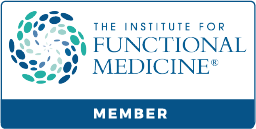
Tips to Master Stress during Exam Season
Exam season can be a stressful time. It's not about stopping the pressure; what matters is how you handle it.
With the right strategies and support, you can effectively manage stress, enhance focus, and optimize your performance.
1. Calm the Nervous System:
Move: Every day, get outside and either play a sport or just take a stroll. This aids in mental clarity and reduces anxiety.
Prioritise Sleep: A typical teen needs eight to ten hours of sleep every night. Insufficient sleep has a detrimental effect on memory, creativity, and critical thinking. Sleep also helps your body (and brain!) restore and be at its best the next day.
Organize yourself: On many occasions, the anxiety comes because we feel we are out of time. Setting out a plan at the beginning and setting small goals will make you feel more confident you are on the right track.
Try relaxation techniques: Kinesiology, a psycho-corporal therapy designed to liberate limiting behaviors, patterns, and emotions stored in the body's memory, can prove highly advantageous during exam preparation. It helps enhance concentration, self-confidence, organization, and structure. By identifying and addressing imbalances in the body, kinesiology promotes better stress management and instills confidence for your exams.
2. Manage physical discomfort
There are a few common symptoms that our osteopaths regularly encounter at our clinics during exam periods including headaches and migraines, neck, back and shoulder pain, wrist strain and insomnia. You don't have to live in pain! Osteopaths can help manage the pain or in many cases, erradicate it for good. Here's how it works:
- During the initial assessment, you osteopath will determined whether these issues are present along with any others, and a treatment plan will be presented. This plan may include some or all of the following:
- Prescribed exercises such as stretches or gentle resistance work - will help manage symptoms in between and after the osteopathic treatment.
- Osteopathic massage combines the stretching techniques used by osteopaths with both light and deeper strokes, rubbing, and other techniques to help patients avoid the poor postures and positions that cause or exacerbate pains and stresses.
- Traction: To support, stretch, and relieve tension and stress, your body's parts—typically the arms, legs, and head—are gently lifted and pulled.
- Counterstrain: An osteopathic physician will reduce sore muscles or joints and muscle spasms by adjusting joints or muscles.
- Joint manipulation: Your osteopath will carefully adjust any joints in your body that are misaligned and may be causing you pain or restricting your range of motion.
- Cranial massage: A more gentle method ideal for younger patients or those needing stress and pain relief.
3. Master your study environment:
- Ergonomics are key: Organize your workplace in the office to encourage proper posture. Make sure your knees are at a 90-degree angle and your feet are flat on the ground by adjusting the height of your chair. To prevent neck discomfort, position your computer monitor at eye level. Make use of a keyboard and mouse that support a comfortable posture and let your arms rest comfortably. Here are some key tips from our osteopath Guillaume to improve your posture while sitting.
- Frequent Movement Breaks: Long durations of sitting can strain the muscles in your back, causing stiffness. Make time to stand up, stretch, and move about on a regular basis. Try easy stretches that focus on your shoulders, lower back, and neck, such as these exercises for stiff shoulders by Osteopath Guillaume.
4. Optimize Nutrition:
- Exams are important. But eating is too! Nutrition plays a significant role in mental health and cognitive function, making it essential to fuel your body with nutrient-rich foods during the exam season. Our nutritionists provide personalized guidance and meal plans tailored to support brain health and performance. By incorporating foods rich in vitamins, minerals, and antioxidants, you can enhance focus, concentration, and overall mental well-being.
- Proper hydration is essential for maintaining spinal health. Drink an adequate amount of water throughout the day to keep your intervertebral discs hydrated and pliable. Dehydrated discs can lead to increased stiffness and discomfort. A supplement like Restore Hydration can help you improve cellular hydration, faster.
Find what works best for you and make it a regular part of your self-care routine!
Don't hesitate to reach out for support if you're feeling overwhelmed or struggling to cope with exam stress. Our multidisciplinary team is here to provide guidance, support, and personalized solutions to help you thrive during this challenging time. You've got this!


